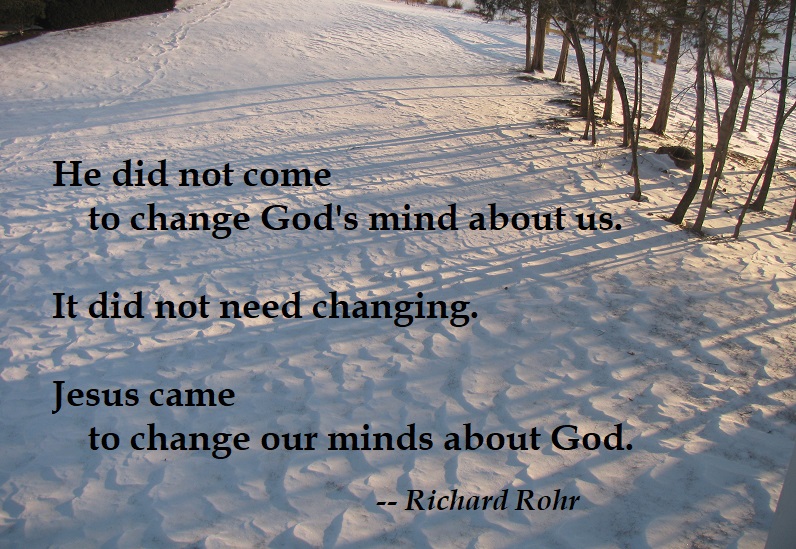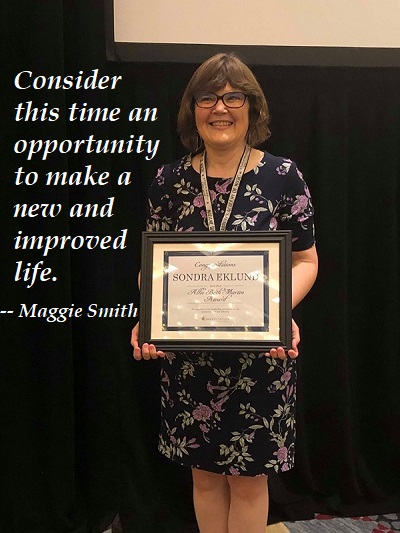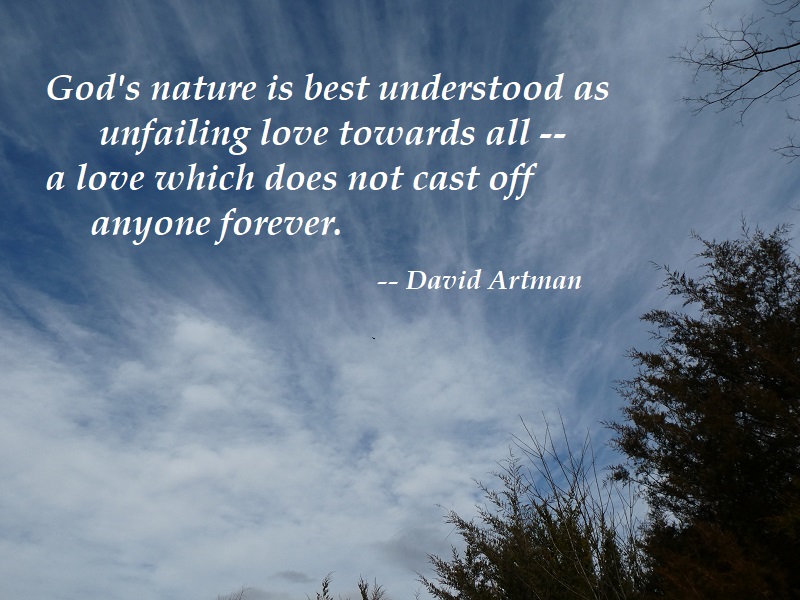Month: January 2021
Changing Our Minds, Not God’s
As John puts it, “He will show the world how wrong it was about sin, about who was really in the right, and about true judgment” (16:8). This is what Jesus is exposing and defeating on the cross. He did not come to change God’s mind about us. It did not need changing. Jesus came to change our minds about God — and about ourselves — and about where goodness and evil really lie.
— Richard Rohr, The Universal Christ, p. 151
Photo: South Riding, Virginia, February 21, 2015
God Is Not Out to Squash You
One of the great comforts in my travels to build a bigger table and to right-size God has been a simple reality that I’ve embraced, one that I hope seeps deep into your heart whatever your theological leanings are: God is not out to squash you. This is an incredibly difficult truth to claim if you’ve experienced religion through the lens of fear that told you otherwise.
I grew up believing that God loved me dearly. I also grew up believing God was very angry with me. I was taught that God personally created me and yet was immediately displeased by my sinfulness. So my very earliest identity was forged in the crucible of this unsettling duplicity: I was both adored and resented by my Creator. As a child I lived in the tension of being the object of both the wrath and the love of God simultaneously. As I grew, I was told I needed to find and do and believe what would tip the scales from punishment to reward, from damnation to salvation, from abandonment to blessing. I had to remove the massive barrier between myself and God, to bridge the wide expanse between the two of us — which somehow was me. For simply being, the problem was me. Apologize for my inborn transgressions and I earned the right to be God’s child. One wrong move, one doctrinal deviation, one errant belief, though, and I would be toast. Living always in paradox, I learned that I had a tender, caring Maker who knit me together in my mother’s womb, numbered every hair on my head — and was never far from destroying me for the birth defect I’d inherited somewhere in the process.
— John Pavlovitz, A Bigger Table, p. 161-162
Photo: South Riding, Virginia, 1/23/21
New and Improved
Revise the story you tell yourself about starting over. Consider not only how terrifying change can be but also how exhilarating. Consider this time an opportunity to make a new and improved life.
KEEP MOVING.
— Maggie Smith, Keep Moving, p. 12
Photo: American Library Association Annual Conference, Washington DC, June 22, 2019
Not Cast Off Forever
If Lamentations 3:31-33 is an accurate description of God’s nature, then God’s nature is best understood as unfailing love towards all — a love which does not cast off anyone forever. Though God might be compelled by love to cause grief, God derives no pleasure from it. God ultimately only causes grief as part of a long-range plan to bring God’s lost children back home. The arc of God’s judgment, while perhaps having to last ages upon ages, nevertheless ultimately bends back towards restoration.
— David Artman, Grace Saves All, p. 23
Photo: South Riding, Virginia, January 2, 2021




